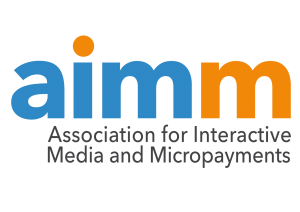
90% of consumers state the ending of a subscription to a service should be entirely their decision.
5th August 2021: Research of 1,000 consumers, commissioned by aimm in June 2021, observed that 93% described the process of signing up to a subscription to be clear and transparent. Just 1.5% of consumers found themselves subscribed to a service that they didn’t want. Unsurprisingly then, 90% of consumers felt that they alone should be responsible for choosing when to end their subscription, and 78% don’t want to sign up for a fixed term.
The research found that when it comes to digital subscriptions, regulation should guide consumer behaviour, but not be an imposition.
The current regulations already require robust consent, so any new regulations that impose stricter criteria will automatically discriminate against subscribers who are passively happy. The natural suspicion of consumers to click on links to renew a subscription means that services, including charity fundraising, will suffer, should this become a requirement.
The recommendation from the research, which asked about consumers’ preferences regarding reminder messages and length of subscriptions, is that for monthly subscription services a reminder message should be sent every month for the first 3 months, then once a quarter following that, with an additional service summary sent annually.
Joanna Cox, General Manager at aimm said “We wanted to ask consumers what they wanted when it came to digital subscriptions. The results of the research overwhelming show that the current regulations provide enough security for consumers and if anything they’d like to be contacted even less than they currently are.”
Over 97% of consumers felt that an annual service summary, that was for information only and did not need to be acted on, would be beneficial. Consumers now think of digital subscriptions as long term and not in 12-monthly timeframes. This is backed up by the fact that 75% have subscribed to a service or donation for over a year.
“We want to make sure that consumers are protected and feel safe using mobile subscriptions to sign up to services or donate to charity,” said Neil Johnson, Chairman at aimm. “However, we also want to make sure that we don’t create regulations that are too stringent, that actively dissuade consumers from signing up to quality subscription services, or mean that they are inadvertently cancelled. Too much unnecessary regulation risks damaging the consumer experience and the subscription business model; a model which creates a convenient way for users to pay for services they enjoy.”
Details about the research
Research was commissioned via Mobile Squared during June 2021. This research asked a panel of 1,000 unbiased people about their experiences, with the expectation that this would provide a meaningful insight into the world of those with a passive happiness with the service they receive. The panel was evenly split by age group, gender and location, to ensure a fair cross-representation of society.
Whilst recognising there have been challenges with phone-paid subscriptions in the past, these have now largely been resolved. This research addressed the experiences of those with a passive happiness with their subscription; the silent majority of people now using phone-paid subscriptions without concern.



